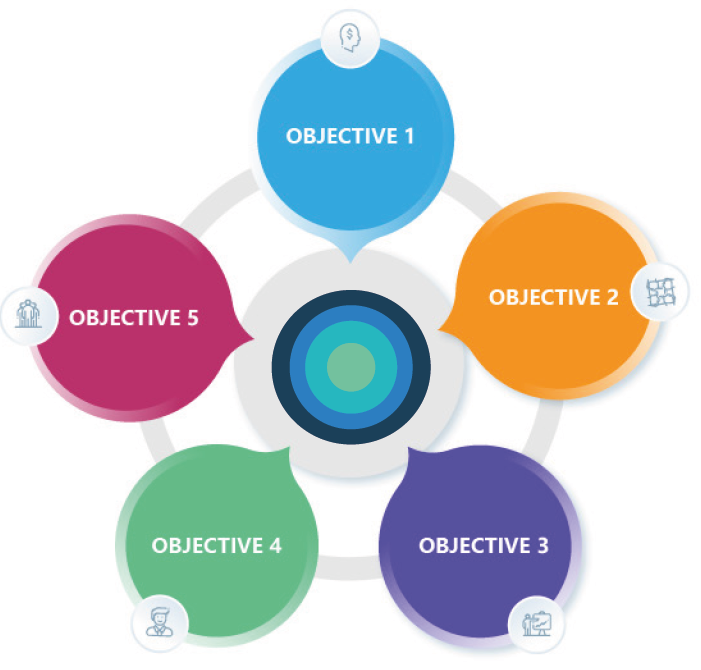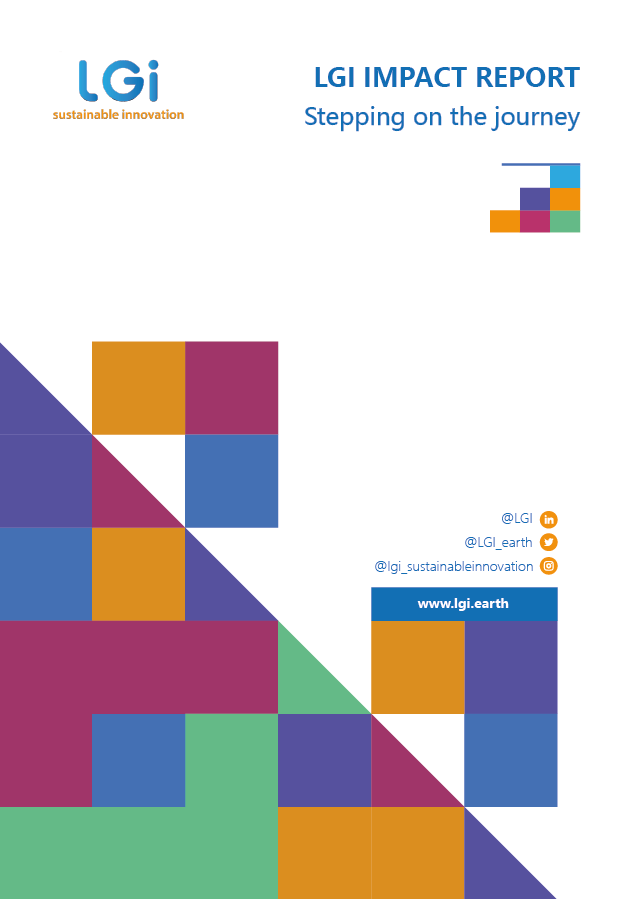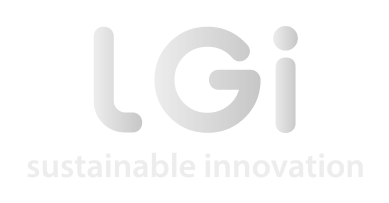Since 2005, we have been engaging in numerous projects with the ambition of bringing new solutions to growing challenges. This has been achieved by collaborating with numerous clients and partners from research, innovation, the public sector and industry. Our action has always been driven by the conviction that innovation can be a game-changer in the fight against climate change and other planetary challenges.
15 years later, the publication of the French law “PACTE” (Plan d’Action pour la Croissance et la Transformation des Entreprises) established the framework for a national definition of a “Société à mission” and this opportunity presented itself as a natural evolution for LGI.
In 2020, we made the statutory leap to become a mission-driven enterprise with the raison d’être of “promoting sustainable innovation as a vector of solutions to the planet’s climate, environmental and societal challenges”. These are not just words: they drive our actions every day.
The current four objectives were established when LGI became “Société à Mission” in 2020:

- Objective 1: To develop, pilot and contribute to not-for-profit projects with the aim of advancing sustainable research and innovation, particularly in the areas of climate change, biodiversity and sustainable agriculture, circular economy, and sustainable and inclusive cities.
- Objective 2: Share knowledge around these issues and solutions, through a policy of public and royalty-free communication of project results, data and analysis.
- Objective 3: In the services delivered by the Company, advise and support clients in adapting their business model and developing growth opportunities in line with sustainable innovation.
- Objective 4: Limit the carbon footprint directly attributable to all projects and missions, for the company and its stakeholders
We started off with
four Mission objectives
but as we embarked on the journey of assessing our impact, we realised that we were missing a
fifth objective
and are proposing to step forward and make what we believe are the necessary changes to be fully aligned with our identity and values adding:
- Objective 5: Making LGI a great place to work!
Defining Sustainable Innovation
Firstly, since our mission is to promote “sustainable innovation”, let’s look into what we mean by that. For us, sustainable innovation means to innovate while having a positive impact, it is about solving an environmental, societal or social problem, while ensuring the sustainability of its economic model and moving towards zero negative externalities. Innovation becomes a lever for sustainability, serving transitions towards a more sustainable world (environmental, low-carbon, societal, etc.). It contributes to the implementation of the United Nations Sustainable Development Goals (SDGs) and other international agendas (IPCC, IPBES, etc.). Conversely, the concept implies that the externalities of innovative solutions must be assessed and embedded in strategic choices at the design stage, to ensure that the innovations will be effectively sustainable in their implementation. This is where conflicting priorities between the SDGs may arise (for instance regarding land use, promoting affordable and clean energy (SDG7) might come at the expense of biodiversity (SDG15)). Trying to solve this is at the heart of the sustainable innovation paradigm.
How we are making an impact
After setting up a mission committee (“Comité de Mission”) to bring structure and life to LGI’s commitment, workshops were organised with LGI staff to co-define what it means for LGI to have a positive impact, as well better understanding the pathways to impact. An impact team was set up to progress along LGI’s mission objectives and in collaboration with HEC Business School, business students were engaged on an impact assessment project to support with the research work and analysis.
To find out more about our approach and how we are making an impact across our mission objectives and our 4 business units, check out our newly released Impact Report!

Impact method applied to Horizon Europe projects
To maximise the effects of the European Research and Innovation investments and ensure their contribution to the European Commission’s policy priorities, a shift has occurred in the Horizon Europe framework from an activity-driven to an impact-driven programme. This is why at LGI we have developed a methodology to advise and support our clients and partners in the development of proposals in line with the EC strategic planning and the elaboration of pathways to scientific, economic and societal impacts. It is based on the Theory of Change and adapted to the EU tendering process.
Overview of LGI’s impact assessment expertise
Based on a diverse team of business managers, start-up coaches, environmental engineers, science policy experts and economists, LGI’s approach to impact assessment is to have a broad, transversal view on a set of key impact dimensions, while digging deep into specific assessments: environmental (lifecycle assessment, carbon and biodiversity footprints, value chain modelling, value-based proposition design), economic (lifecycle costing, business modelling, business planning), social (socio-economic analysis) and policy (policy mapping, governance analysis). This expertise has been applied to business clients (Veolia), start-ups (TCDF) and EU projects (ION4RAW, FOCUS-Africa, Houseful, Paperchain, BL2F…) on key challenges: circular economy, sustainable sourcing of raw materials, energy transition, nature-based solutions, transition to net zero…
If you also wonder how you can address these challenges in your organisation through an impact-oriented lens, let’s get in touch!




FOLLOW US